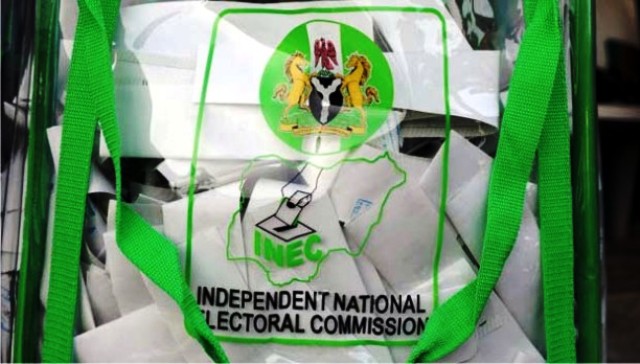Editorial
Towards A Fruitful Party Convention

Last week, the Independent National
Electoral Commission (INEC) finally
released the list of cleared 19 candidates for the Edo State Governorship polls. This was in keeping with Section 34 of the Electoral Act, 2010 (As Amended) which makes mandatory for INEC to publish names of candidates, 30 days to the conduct of elections. Amidst initial apprehension and skepticism, the list contained the name of Ize-Iyamu, as official candidate of the Peoples Democratic Party (PDP), in that state.
Ordinarily, such doubts would have been unnecessary, but considering the ‘dog in-a-manger’ approach adopted by the party’s erstwhile Acting National Chairman, Ali Modu Sheriff, there was no telling what surprise he could spring. For instance, shortly after the PDP Edo State primaries that produced Ize-Iyamu, dangling a court judgement in Abuja, which purportedly legitimised him authentic National Chairman of the PDP, Sheriff conducted another primary which produced one of the candidates earlier defeated by Ize-Iyamu as the PDP candidate.
Unfortunately for the Shefiff faction, INEC had monitored the previous primary that produced Ize-Iyamu and naturally, could not have attended a second primary accredit another candidate on the same party platform.
Even so, considering the conflicting rulings by various courts on the leadership crisis in the party, one cannot but be apprehensive of ‘everything’ including of course, the threat to disenfranchise the official PDP candidate, under the guise that he was not chosen by the Sheriff faction. Worse issues have arisen since the crisis.
This is why INEC deserves commendation for maintaining the neutrality expected of an electoral umpire, for being just, as an observer of the PDP primary that produced the official candidate, and for standing by its resolve to uphold justice and fairness.
But a bigger responsibility for the electoral body, will be to monitor today’s PDP National Convention which opens in Port Harcourt. The event is expected to produce a new national executive for the party. Such a leadership should put an end to the lingering factionalisation of the party, thus, denying the Nigerian electorate the much required purposeful opposition necessary for growth and development.
On its part, the PDP should see today’s Convention as a fresh opportunity to put its house in order and put behind it the many distractions of the recent past. Leaders must put their individual ambitions behind corporate goals, peace and unity of purpose.
The Tide believes that every true democracy owes its growth and viability to the quality of opposition, an opposition that does not merely criticise for criticism sake but advances quality alternatives to lingering national challenges.
A poltical party that is riddled with leadership controversies and protracted litigations will be too distracted to meet its lawful obligation of offering alternative views on national issues. Infact, each move by one faction would attract a counter by the other, as none would see good in the other’s actions.
This is why the PDP National Convention must do everything humanly possible to leave behind rancour that characterised its immediate past and elect a nationalistic and dependable leadership that would drive its major opposition agenda. Such a leadership should also be able to reconcile all grieving interests and ultimately unite the party.
Luckily, the Federal High Court in Port Harcourt has granted the much required judicial backing necessary to enlist the support of public institutions like the Police, the Directorate of State Security (DSS) and the Independent National Electoral Commission (INEC), towards ensuring a hitch-free Convention.
The party must leverage on the court order to ensure security, and convoke a result-oriented assembly rooted in the party’s Constitution and the law.
The Tide welcomes delegates to Port Harcourt and wishes them a fruitful convention.
Editorial
Beyond Accessing Bonny By Road

Editorial
Time For GL 17 In Rivers

Editorial
For A Prosperous 2026

-

 News1 day ago
News1 day agoNigeria Has Woken Up From Slumber Under Tinubu – Shettima
-

 News1 day ago
News1 day agoOji Clears Air On Appointment Of 15 Special Advisers By Fubara
-

 Featured1 day ago
Featured1 day agoRivers: Impeachment Moves Against Fubara, Deputy Hits Rock …As CJ Declines Setting Up Panel
-
News1 day ago
Nigeria To Begin Exporting Urea In 2028 -NMDPRA
-

 News1 day ago
News1 day agoEFCC Indicts Banks, Fintechs In N162bn Scams
-
News1 day ago
Situation Room Decries Senate’s Delay On Electoral Act, Demands Immediate Action
-
Niger Delta1 day ago
Tinubu, Leading Nigeria To Sustainable Future – Okowa … Lauds Oborevwori Over Uromi Junction Flyover Construction
-

 News1 day ago
News1 day agoKing Jaja Impacted Beyond Rivers -Deputy Gov

